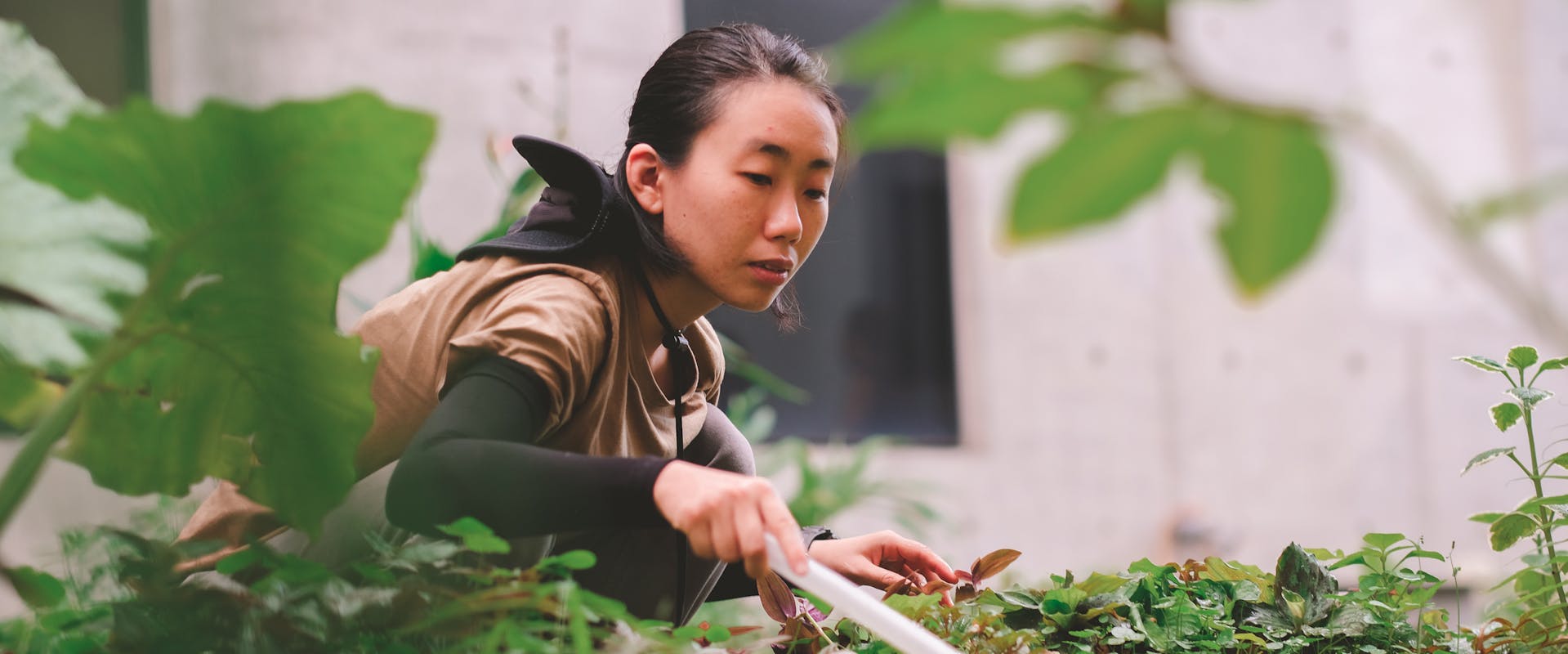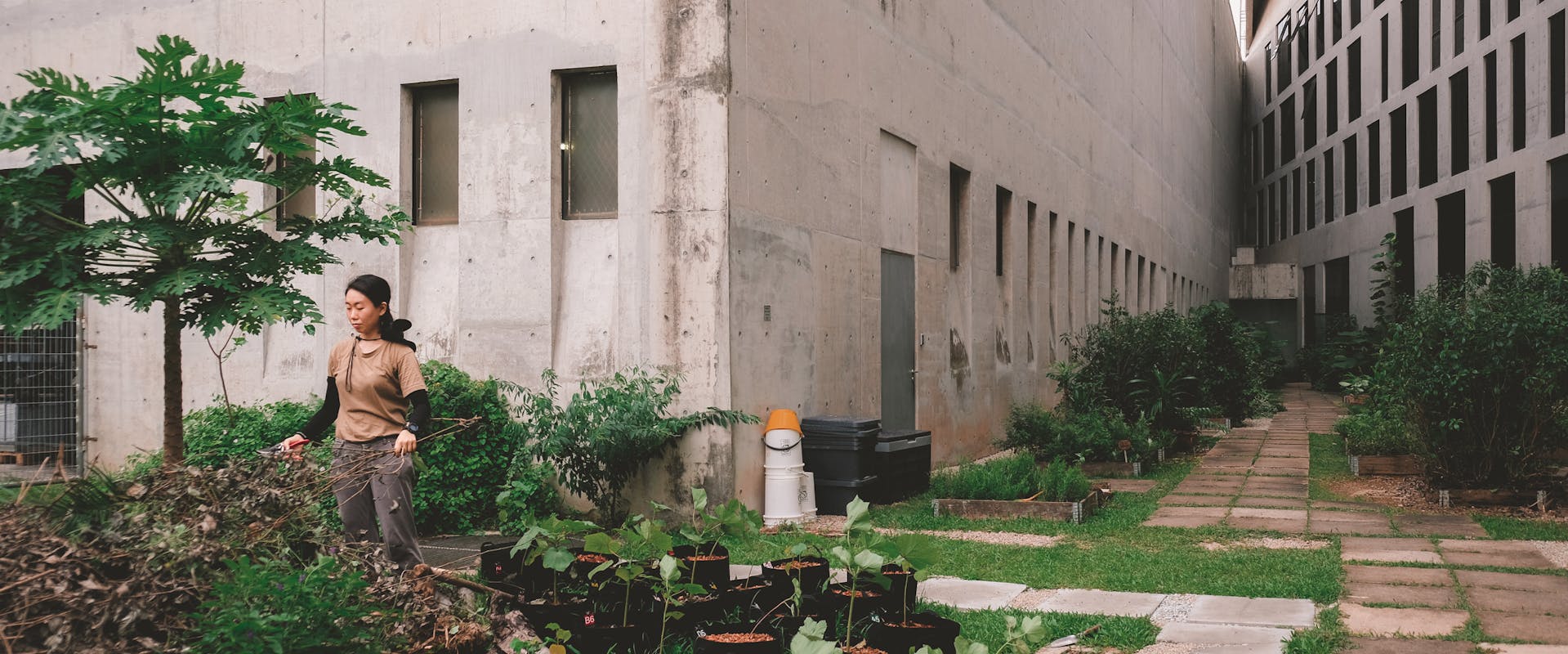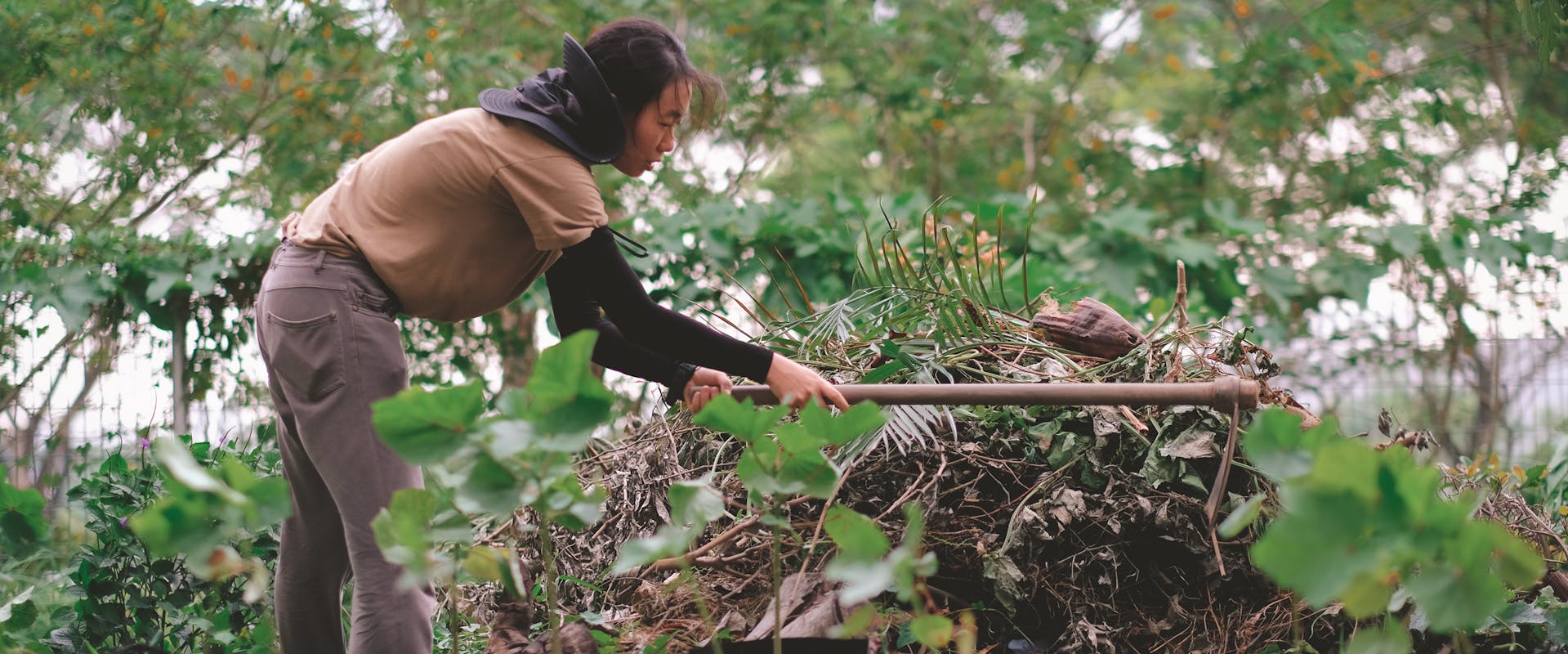
Ee Peng - a syntropic Zen farmer in an industrial space
This is part of a series of photo essays titled "Local Food System and Climate Change" initiated and photographed by Jen Chan, with text by Chen Chingwei. The photos in this series are made between May 2020 and April 2021.
Behind the grey concrete facade of Wah Son Engineering lies a verdant soil-based urban farm. Laid out in timber-sided raised beds, the farm flows around the edges of the building like liquid pooling around a solid, filling the eye with an expanse of lushness, softening the hard corners of the buildings, and veiling the wire fences.
This is the creation of Ang Ee Peng, a syntropic farmer who is hired by Wah Son’s senior management to realise the company’s vision of a circular farm-to-canteen food system for their staff.
Ee Peng’s slight frame belies her years of experience living in and working on farms, such as a 3-year stint in a monastery farm in Japan. Her mild but to-the-point way of speaking, and the light and purposeful way she moves around the space, reminds one of a healthy flowing stream - clear and self-possessed, moving through changing landscapes, being a part of all of them, yet unattached to any of them.
Like its farmer, the farm at Wah Son has a deceptively laid-back go-with-the-flow vibe that conceals an inner order and purpose. Some elements dotted around the farm may puzzle first-time visitors, such as the mound of branches and trunks sitting like a rambly hill amidst a neat village of precisely-squared raised beds; the tiny pond that looked more like an accidental (albeit picturesque) large ditch, and the layers of shaggy green-upon-green “messiness”.
Rustic appeal aside, these elements have larger purposes. Afterall, syntropic farming is an organised method based on bio-ecological sciences, with high productivity aims.
With her creative resourcefulness, Ee Peng approached the landscape workers in the area to rescue their regular prunings so she may use the stockpile of branches and trunks to create hugelkultur mounds whenever she needed. Similarly, she hand dug a tiny pond directly out of the type of sticky clay that is the bane of Singapore’s gardeners, and harnessed the stickiness as a natural sealant that cups and holds pond water and fishes. Created to increase biodiversity on the farm, the pond not only achieved that (predators such as toads and lizards have moved in, along with dragonflies, indicating a healthier food chain), it also helped reduce the mosquito population that was once active in the garden.
As for the shaggy green “messiness”, that is actually highly useful biomass - a living source of assorted plant material that Ee Peng dips into frequently to make mulches and composts, and to pad up her hugelkultur mounds.
A key feature of syntropic farming is grouping climate and location-suitable plants into cooperative consortiums, and queuing them up in a line of ecological succession.
Amongst the plants that Ee Peng uses in successional planting, the pigeon pea (Cajanus Cajan) is particularly precious to her. She loves it for its giving, almost sacrificial, quality. A legume that grows into a hardy and graceful small tree, its roots are useful for breaking into hardened ground and fixing nitrogen into the soil. Its leaves, in addition to being fodder for livestock, provide light shade to young plants, and can be chopped and dropped as mulch, protecting the soil and plant roots. The beans, when dried, make delicious stews such as dahl.
The pigeon pea is a perfect pioneer to introduce into new ground, readying the space for next generation planting, feeding soil microorganisms, livestock and people alike. Then, when its role is done, it is removed to make room for the new plants to come.
Ee Peng sees her role in Singapore’s farming landscape like that of the pigeon pea. She helps things transition to the next stage, while nourishing people with the food she grows and the farming knowledge she passes on in talks and workshops.
The act of nourishing is not always appreciated by the staff at Wah Son however, many of whom are workers from mainland China with very different food habits. The sweet potato leaves and pumpkins she grew were actually common fare for pigs back in their hometowns, and they didn’t hesitate to voice that. Meat was also preferred over vegetables, the latter usually heavily seasoned and sauced, masking whatever original flavours they may have acquired from Ee Peng’s tending.
Another challenge is educating the kitchen staff about forming circular habits, especially on food waste disposal. Ee Peng created two kinds of composting systems - one for cooked food waste, the other for raw kitchen scraps. The kitchen staff were so used to throwing out everything into one dumpster, it was a few months before the “segregate your waste” mentality finally took root.
There’s also the matter of using unfamiliar food plants, such as Egyptian spinach and Asystasia. The latter grows easily and abundantly in Singapore, but is tedious to process because its leaves need to be plucked from the many branches; time-consuming work when you are cooking for teams of employees.
For these conundrums and others, and despite feeling undervalued at times, Ee Peng serenely observes that it takes two hands to clap and that both parties can try walking in each other’s shoes.
Empathetic communication between a farmer and the community she farms for is important to Ee Peng, who has regular conversations with Wah Son’s kitchen team about what’s being grown, what is ready for harvest, and ways to prepare and cook the produce.
For the wider public, Ee Peng conducts workshops to get the word out about soil-based farming, and to share her personal experiences and knowledge of her regenerative practice. In these times of climatic change, communication is ever more vital to help light a way forward.
Wah Son Engineering is a successful example of how a business can embrace a regenerative close-loop farm-to-canteen system right in their commercial space. It is a testament to both their farmer and kitchen team that the process has sustained nearly 3 years (as of March 2022), as Ee Peng and the cooks overcame teething issues, worked through the growing pains, and moved towards better and better cooperation. Exactly like the farm, a syntropic relationship within and without.
[1] Like how Nature uses evolving ecosystems to intensify and refine life over millennia, a syntropic farm advances in an ever-improving trajectory, accumulating biomass, fertility and yield over the years. This is completely different from the current conventional farming practices that are entropic - they dissipate life from below and above the soil, until the land has to be left to fallow or even abandoned, and the farmer moves on to (literally) greener pastures. In syntropic farming, the farmer’s goal is to stay put and steward the green pastures in an unbroken reciprocal cycle over his/her lifetime.
[2] Hugelkultur is a German term that translates to “hill culture”. It is a way of creating raised beds by using plant materials that are available locally to make mounds on which to grow a garden. Starting with tree trunks and branches at the base, and building upwards by layering an assortment of fresh and dried grasses and leaves, the resulting pile can be flat-topped or curved like a hill depending on what the gardener wants to achieve. The pile is left to break down and mature over a few months before planting. Hugelkultur beds are worth the wait because they are proven to retain moisture, facilitate good soil aeration and drainage, and foster beneficial microbial and fungal populations that are the food-makers for the plant community that will be moving in.
[3] Biomass is another word for living material, whether plant or animal, including human beings. In the context of this article, biomass refers to the plant material that is available to be harvested and used in various farming practices such as making mulches to protect the surfaces of soil, making composts and adding to hugelkultur mounds.
About the authors
I’m Chinese, but perhaps with gypsy blood. I prefer referring myself as a citizen of the mother Earth. I was born and raised in Hong Kong and educated in Canada. I’ve also stayed in Singapore and Australia. Recently I’ve moved to Berlin to continue my adventure in Europe.
Keeping a childlike curiosity towards the world I live in and my finger firmly on the pulse of society, I would indulge myself at the corner of the street soaking up every detail of a building or mannerism of a passerby. A somewhat introvert who sometimes just hides inside her hamster ball. I started taking portraits to build the bridge to connect with people. I strive to create meaningful experiences through taking photographs and I continue to try to capture a sense of curiosity, compassion and sensitivity in my photos.
I am a Singapore-born Australia-based permaculturist, soil advocate and compost maker.
Proper-sounding labels aside, I am a country girl at heart, happiest when I lived off-grid amongst wildlife, planting trees and growing close to 70% of my own vegetables and herbs.
An innate curiosity (a.k.a. kaypohness) and a need for constant experimentation led me back to Singapore to co-lead Project Black Gold, a community food scrap composting project with the aim to create awareness and encourage more people to become compost makers. I also co-create at a social venture called Food Citizen.
Share this article
Dig Around
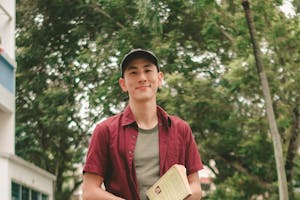
Chris - on homecoming; unpacking "sustainability", self-care for farmers and gardeners, and reality checks
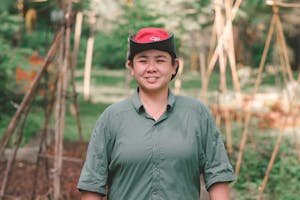
Michelle - the "not-farmer" of edible wild greens
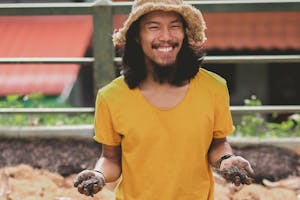
Marcus - your friendly neighbourhood (market) farmer
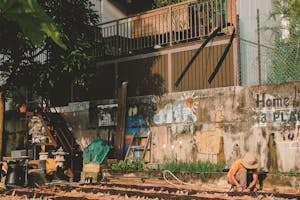
Local Food Systems and Climate Change
Contact Us
Drop us an email or DM on Instagram if you would like to give us feedback, support us in any way, or just to connect!
Foodscape Collective
Foodscape Collective is a ground-up community with a mission to co-create a fair and inclusive circular food system for all. We work together to create communities and livelihoods through collaborative and supportive practices.
Copyright (C) 2026 - Foodscape Pages. All Rights Reserved
